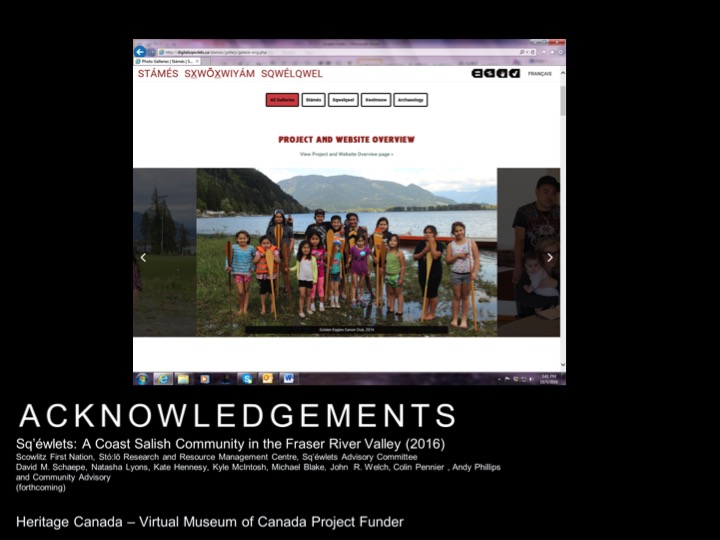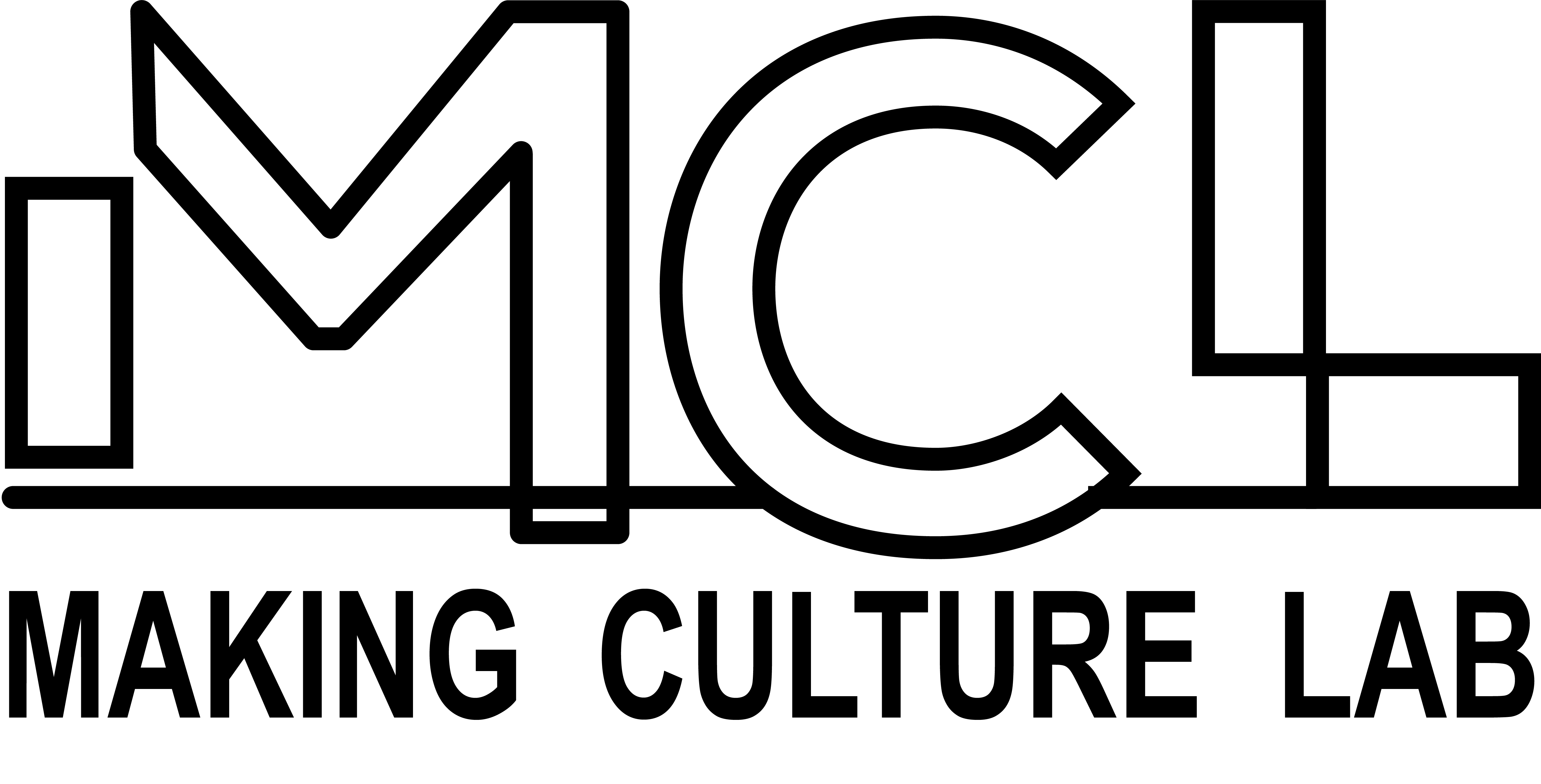Presentation: Digital Sq’ewlets in the Working Tools Seminar Series: Community-Facing Data Management Platforms for Indigenous-University Partnerships
On Dec. 11, 2020, Dave Schaepe (SRRMC), Kate Hennessy (SFU), Michael Blake (UBC), Natasha Lyons (Ursus Heritage) Clarence Pennier (Sq’ewlets First Nation), and Chief Johnny (Sonny) Williams Jr. (Sq’ewlets First Nation) gave an online seminar presentation as a part of the series Working Tools Seminar Series: Community-Facing Data Management Platforms for Indigenous-University Partnerships.
Working Tools Seminar Series: Community-Facing Data Management Platforms for Indigenous-University Partnerships
One of the key challenges to collaborative practice between university-based researchers and Indigenous communities is to foster equitable knowledge co-production with all stakeholders through the sharing of data. Increasingly this task is mediated by digital systems, but there is no single solution that serves all needs. This seminar series brings together research partnership teams that have developed and employed digital knowledge mobilization solutions to their work. Our ambition is to explore existing efforts and anticipate future digital solutions for research partnerships. See Presentation archive here.
Curating Continuity in Sq’éwlets: A Stó:lō-Coast Salish Community in the Fraser River Valley
Dave Schaepe (SRRMC), Kate Hennessy (SFU), Michael Blake (UBC), Natasha Lyons (Ursus Heritage) Clarence Pennier (Sq’ewlets First Nation), and Chief Johnny (Sonny) Williams Jr. (Sq’ewlets First Nation)
Sq’éwlets: A Stó:lō-Coast Salish Community in the Fraser River Valley is an online virtual exhibit produced by the Stó:lo Research and Resource Management Centre in British Columbia, Canada, and the Sqéwlets Indian Band, a First Nations community located in the heart of the Fraser River Valley (http://www.digitalsqewlets.ca/). Officially launched in early 2017, and based on several decades of community archaeology and oral history work, and the recent production of video mini-documentaries, the website presents a longterm perspective of what it means to be a Sq’éwlets person and community member today. In this presentation, we explore how this project came into being; how it came to focus on communicating a distinct Sq’éwlets worldview; how community members conceived the nature, structure, content of the website; how it mobilizes digital collections data from the Reciprocal Research Network; and, how this Sq’éwlets worldview is translated for outside audiences.
This virtual exhibit is the collaborative work of community leaders, Elders, and youth partnered with archaeologists, anthropologists, media specialists, and other content experts. It stems from a relationship formed 25 years ago by Chief Clarence Pennier and Professor Michael Blake, at a time when the ancestral site Qithyil was under threat by a logging operation. A partnership was formed in 1992 to excavate, examine, understand and protect the ancestral archaeological resources at Qithyil. In addition to representing Sq’éwlets history and worldview, the project also offers one model or method for embedding the tangible and intangible results of community-engaged archaeology into a widely accessible and engaging platform for learning and sharing. It details the historical and ongoing development of collaborative archaeology at Sq’éwlets, it models an approach to the collaborative design of multimedia for the communication of cultural heritage that is premised on mutual respect and the use of cultural protocols for this collective work. This includes the use of new online digital collections networks as generative tools for the reconnection of fragmented archaeological collections and and their potential for supporting digital curation of Indigenous cultural heritage. Further, the project is innovative is its community-based exploration of the politics of ownership of Indigenous cultural property. In the presentation, we will highlight our use of newly developed ‘Traditional Knowledge Labels’ and the way in which the project’s Sq’éwlets Advisory Committee composed definitions of labels such as Family (Ts’elhxwélmexw), Secret/Sacred (Xa:xa), and Attribution (Skwíx qas te téméxw) to reflect Sq’éwlets cultural values for the ethical circulation of knowledge online.




